#ogls
Text
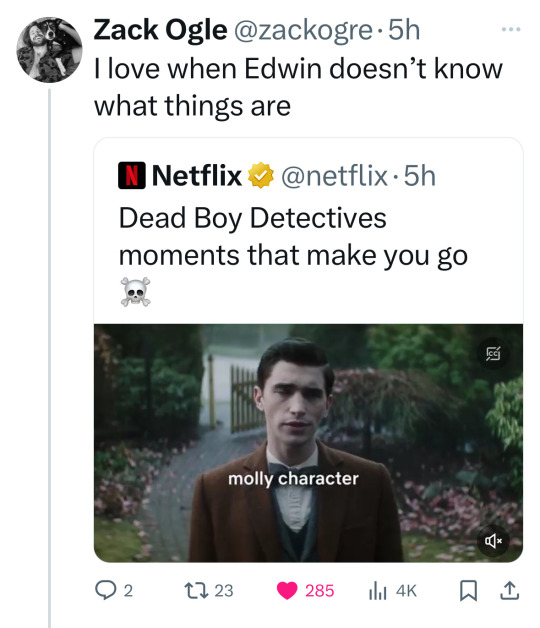
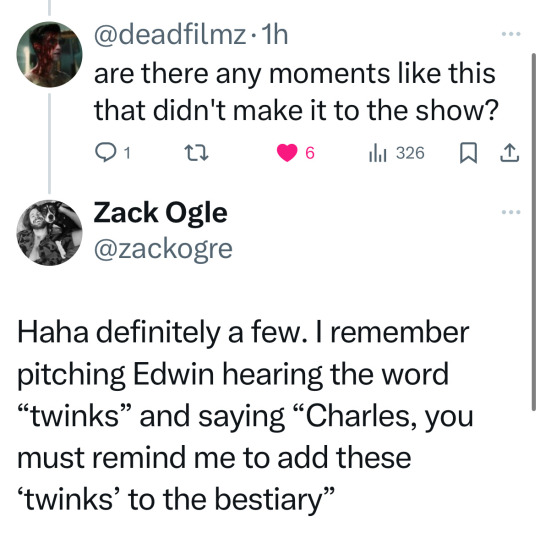
Please for the love of god let Edwin say twink
#I really do recommend going to follow Zack Ogle (dbds writing assistant) on twitter#dead boy detectives#edwin payne#charles rowland
11K notes
·
View notes
Text
TW: Wolverine Badonkas


I laughed rewatching because like
#wade you clearly wouldn't turn down fucking him if the offer ever came up#you're just as down horrendous as these tva agents#who btw must enjoy their employment extra much from that point on#nonchalant motherfucker who openly ogled Logan's abs not five minutes ago#wade honey it's ok flirt with that old man#do it for the nation#do it for the audience#gif credits to owner#deadpool and wolverine#deadpool#deadpool 3#deadpool 2024#wolverine#ryan reynolds#hugh jackman#logan howlett#wade wilson#poolverine#deadclaws#AND LOGAN DOESN'T EVEN REACT TO THE INSULT#domesticated cat no longer blinks when insulted#did they reach that much of an understanding with each other that logan knows wade doesn't mean it#either that or logan genuinely does not give a fuck what wade thinks of his body#either or lol#“Alright 🙄 put 😠 your 🫵greasy tits🫠 away 🤦you🫵 preening🦚 slut💅”#like he's so SICK of Logan's rizz#in a domesticated intimately gay “goddamnit I KNOW same babygirls but like can we fOCUS”#gif credits to landoslastnerve#landoslastnerve
5K notes
·
View notes
Text
So, what is the OGL and why are DnD creators thoroughly screwed?
Tumblr has not been doing a great job at talking about this, but:
With OneDnD, Wizards of the Coast has decided to update the Open Game License (OGL). Said license is what allowed people to create homebrew DnD content and sell it, and even larger companies to use certain sorts of content. Pathfinder, for example, is built on said OGL. This also allows streamers and artists to exist and benefit from said content.
With OneDnD (sometimes called “dnd 6e”), WOTC wants to create a much more restrictive OGL, which will, amongst other things:
Make WOTC take a cut for any DnD-related work (according to Kickstarter, a whole 25% of the benefits)
Let WOTC cancel any project related to DnD up to their discretion
Let WOTC take ANY content made based on their system, and re-sell it without crediting you, or giving you a single cent
And most importantly, revoke the old OGL, which will harm any company or game system that used it as a base, such as Pathfinder. And it means they GET ownership over any homebrew content you may have done for 5e in the past!
It’s important to note that OGLs are supposedly irrevocable. They were planning to use it for OneDnD initially, but they want to apply it retroactively to 5e, somehow. Which is illegal, but lawyers have mentioned there’s a chance they may get away with it given the wording.
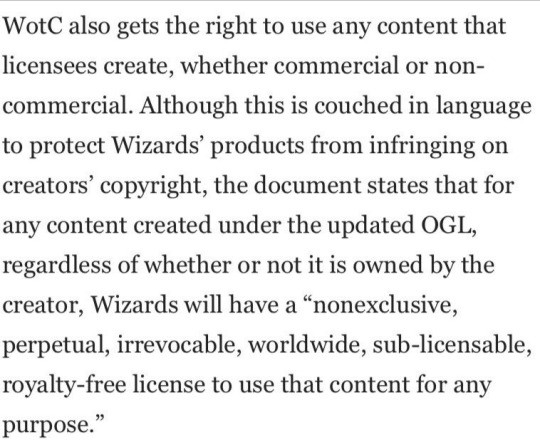
This means that anything you make based on DnD (A homebrew item? A character drawing? Even music, according to them?), can get taken and used as they deem appropiate.
These news come from a leak of the OGL, which have been confirmed by multiple reputable sources (including Kickstarter, which has confirmed that WOTC already talked with them about this), and was planned to be released next week.
So, what can we do?
Speak against it. Share the word. Reblog this post. Let people know. Tumblr hasn’t been talking much about this matter, but it’s VERY important to let people know about what is WOTC bringing.
Boycott them. Do not buy their products. Do not buy games with their IP. Do not watch their movie. CANCEL your DnD Beyond subscription. (Btw, they ARE planning to release more subscription services too!). They do not care about the community, but they care about the money. Make sure to speak through it.
And maybe consider other TTRPG systems for the time being, Pathfinder’s Paizo has been much nicer to the community, their workers are unionized and are far more healthy overall
#dnd#wotc#wizards of the coast#open gaming license#ogl#dnd5e#dnd 5e#homebrew#ttrpg#pathfinder#dungeons and dragons#d&d
28K notes
·
View notes
Text

HELP THE WAY THE GLASSES ARE POSITIONED MAKES IT LOOK LIKE THEYRE OGLING HIM
#is. is ogling the right word??#grian#joel smallishbeans#gtws#scarian#limited life#this is martyns pov btw! somewere around 17:35#astro liveblogs
12K notes
·
View notes
Text
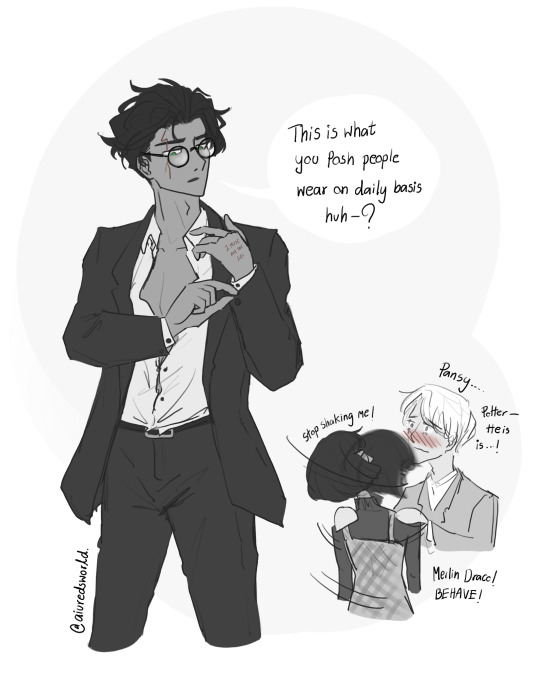
When Harry dresses formally for once
#drarry#hpdm#draco malfoy#harry potter#draco#harry x draco#harry#draco fanart#draco fluff#pansy parkinson#harry is fine af#poor pansy#draco cannot stop ogling
2K notes
·
View notes
Text
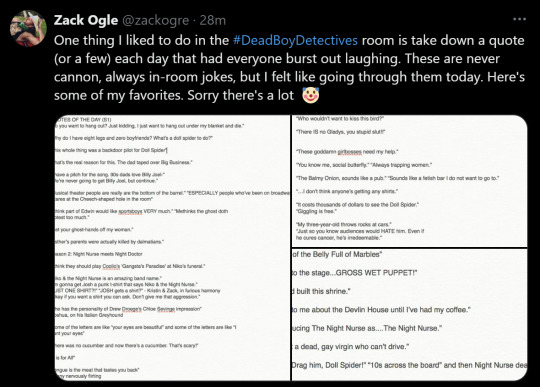
i didn't want to just rip his images, but i thought everyone would enjoy seeing zack's collection of in-room joke quotes!
personal favorites include:
Esther's parents were actually killed by dalmatians.
I think they should play Coolio's "Gangsta's Paradise" at Niko's funeral.
There IS no Gladys, you stupid slut!
Don't talk to me about the Devlin House until I've had my coffee.
You're just a dead, gay virgin who can't drive.
#dead boy detectives#the devlin house one is so real#and rip edwin lol#dying inside but zack has been cool on twitter#unironically the first time i've smiled since before the news dropped. thank you so much zack#text#zack ogle
700 notes
·
View notes
Text
The thing is, D&D is not a game.
I know that sounds insane, but hear me out: D&D is not a game, it is a games console. You don't actually "play D&D." You play "Dragon Heist" or "Tomb of Annihilation" or "Ghosts of Saltmarsh" or "your GM's homebrew campaign" or "the plot of Critical Role Season 1 reconstructed from memory" on D&D.
For quite a long while now - possibly literal decades - D&D hasn't even been the best games console, but it's been "the one everyone knows about" and "the one my friends have" and in fact it's "the one whose name is almost synonymous with the entire medium of TTRPGs," like how "Nintendo" or "Playstation" could just mean "games console" to people who didn't understand games consoles. They might not have heard of a "tabletop roleplaying game," but most people have heard of "Dungeons & Dragons."
For this extended metaphor, D&D is Nintendo back in the 90s, or Playstation in the 2000s. Sometimes you say "oh let's go to my house and play Nintendo" or "c'mon dude I wanna play Playstation" but you're not actually playing Nintendo or Playstation, you're playing Resident Evil or Super Mario Bros or Jurassic Park or Metal Gear Solid or whatever on a Nintendo or a Playstation.
Now, this metaphor is going to get even more tortured, but remember how when the PS2 and the original X-Box came out, they used a standardised DVD format, but the Nintendo console in that generation, the Gamecube, used discs but they were this proprietary tiny little disc format that they had control over? That essentially meant that it was really difficult to make third party titles for the Gamecube that did literally anything that Nintendo didn't want them to do, and also essentially gave Nintendo an even greater ability to skim money off the top of any sales?
So that must've seemed like a smart business decision in their heads. But the PS2 and the X-Box used DVDs. This was a standardized format which gave Microsoft and Sony way less control over who made games for their consoles, but that actually turned out to be a good thing for gaming, because it meant that the breadth of games that you could play on their consoles was massively increased even if some of them were games Microsoft and Sony didn't really approve of. (Also it's worth nothing that the PS2 and the X-Box could just play DVDs, which meant if your household was on a budget, you didn't need a separate DVD player - your games console could do it for you! This was actually a huge selling point!)
What Wizards are currently trying to do now is kinda-sorta the equivalent of Sony suddenly announcing that the PS5 will only accept a proprietary cartridge format they hold the patent on, will control the content of and charge money for the construction of. This possibly seems like it could be a moneymaker in your head because you hold market dominance (apparently the PS5 has 30 million units shipped compared to X-Box Series X 20 million units) and so many people make games for your console, but what it actually means is game devs and publishers will abandon your product. If it takes so much more work, the scope of what they're allowed to do is so much more limited and they're going to make less money off of it, they just won't bother. They'll go make games for the X-Box or PC instead.
To use another computer metaphor, D&D is Windows - it might not be the best system but it's the system most people are familiar with and so it gets the most stuff made for it, but there's is an upper limit on the bullshit people will take before they decide fuck it and get an Apple or learn how Linux works.
TTRPG systems are a weird product because you're not selling people a game, you're selling people a method to play a game. All the actual games are created by the community - even prewritten campaigns needs to be executed via a game master. Trying to skim money off the community will mean they'll eventually give up on you.
#open gaming license#dungeons and dragons#ogl#ogl 1.1#opendnd#wizards of the coast#one dnd#d&d#dnd#tabletop gaming#tabletop roleplaying games#ttrpgs
11K notes
·
View notes
Text
Good riddance to the Open Gaming License
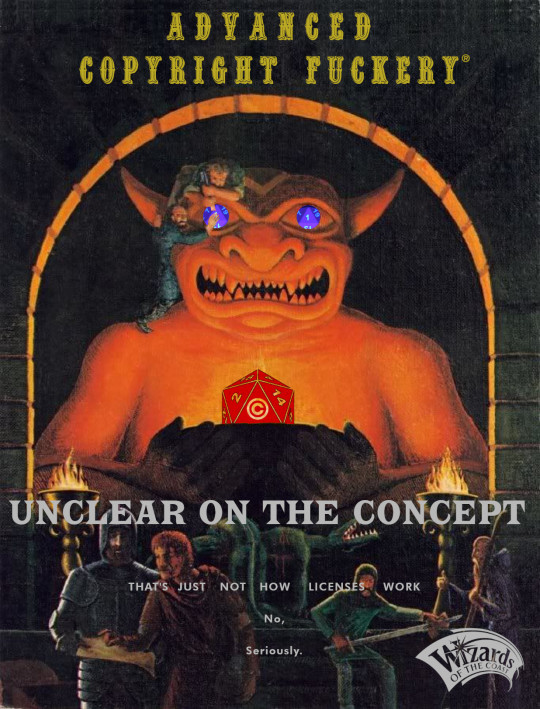
Last week, Gizmodo’s Linda Codega caught a fantastic scoop — a leaked report of Hasbro’s plan to revoke the decades-old Open Gaming License, which subsidiary Wizards Of the Coast promulgated as an allegedly open sandbox for people seeking to extend, remix or improve Dungeons and Dragons:
https://gizmodo.com/dnd-wizards-of-the-coast-ogl-1-1-open-gaming-license-1849950634
The report set off a shitstorm among D&D fans and the broader TTRPG community — not just because it was evidence of yet more enshittification of D&D by a faceless corporate monopolist, but because Hasbro was seemingly poised to take back the commons that RPG players and designers had built over decades, having taken WOTC and the OGL at their word.
Gamers were right to be worried. Giant companies love to rugpull their fans, tempting them into a commons with lofty promises of a system that we will all have a stake in, using the fans for unpaid creative labor, then enclosing the fans’ work and selling it back to them. It’s a tale as old as CDDB and Disgracenote:
https://en.wikipedia.org/wiki/CDDB#History
(Disclosure: I am a long-serving volunteer board-member for MetaBrainz, which maintains MusicBrainz, a free, open, community-managed and transparent alternative to Gracenote, explicitly designed to resist the kind of commons-stealing enclosure that led to the CDDB debacle.)
https://musicbrainz.org/
Free/open licenses were invented specifically to prevent this kind of fuckery. First there was the GPL and its successor software licenses, then Creative Commons and its own successors. One important factor in these licenses: they contain the word “irrevocable.” That means that if you build on licensed content, you don’t have to worry about having the license yanked out from under you later. It’s rugproof.
Now, the OGL does not contain the word “irrevocable.” Rather, the OGL is “perpetual.” To a layperson, these two terms may seem interchangeable, but this is one of those fine lawerly distinctions that trip up normies all the time. In lawyerspeak, a “perpetual” license is one whose revocation doesn’t come automatically after a certain time (unlike, say, a one-year car-lease, which automatically terminates at the end of the year). Unless a license is “irrevocable,” the licensor can terminate it whenever they want to.
This is exactly the kind of thing that trips up people who roll their own licenses, and people who trust those licenses. The OGL predates the Creative Commons licenses, but it neatly illustrates the problem with letting corporate lawyers — rather than public-interest nonprofits — unleash “open” licenses on an unsuspecting, legally unsophisticated audience.
The perpetual/irrevocable switcheroo is the least of the problems with the OGL. As Rob Bodine— an actual lawyer, as well as a dice lawyer — wrote back in 2019, the OGL is a grossly defective instrument that is significantly worse than useless.
https://gsllcblog.com/2019/08/26/part3ogl/
The issue lies with what the OGL actually licenses. Decades of copyright maximalism has convinced millions of people that anything you can imagine is “intellectual property,” and that this is indistinguishable from real property, which means that no one can use it without your permission.
The copyrightpilling of the world sets people up for all kinds of scams, because copyright just doesn’t work like that. This wholly erroneous view of copyright grooms normies to be suckers for every sharp grifter who comes along promising that everything imaginable is property-in-waiting (remember SpiceDAO?):
https://onezero.medium.com/crypto-copyright-bdf24f48bf99
Copyright is a lot more complex than “anything you can imagine is your property and that means no one else can use it.” For starters, copyright draws a fundamental distinction between ideas and expression. Copyright does not apply to ideas — the idea, say, of elves and dwarves and such running around a dungeon, killing monsters. That is emphatically not copyrightable.
Copyright also doesn’t cover abstract systems or methods — like, say, a game whose dice-tables follow well-established mathematical formulae to create a “balanced” system for combat and adventuring. Anyone can make one of these, including by copying, improving or modifying an existing one that someone else made. That’s what “uncopyrightable” means.
Finally, there are the exceptions and limitations to copyright — things that you are allowed to do with copyrighted work, without first seeking permission from the creator or copyright’s proprietor. The best-known exception is US law is fair use, a complex doctrine that is often incorrectly characterized as turning on “four factors” that determine whether a use is fair or not.
In reality, the four factors are a starting point that courts are allowed and encouraged to consider when determining the fairness of a use, but some of the most consequential fair use cases in Supreme Court history flunk one, several, or even all of the four factors (for example, the Betamax decision that legalized VCRs in 1984, which fails all four).
Beyond fair use, there are other exceptions and limitations, like the di minimis exemption that allows for incidental uses of tiny fragments of copyrighted work without permission, even if those uses are not fair use. Copyright, in other words, is “fact-intensive,” and there are many ways you can legally use a copyrighted work without a license.
Which brings me back to the OGL, and what, specifically, it licenses. The OGL is a license that only grants you permission to use the things that WOTC can’t copyright — “the game mechanic [including] the methods, procedures, processes and routines.” In other words, the OGL gives you permission to use things you don’t need permission to use.
But maybe the OGL grants you permission to use more things, beyond those things you’re allowed to use anyway? Nope. The OGL specifically exempts:
Product and product line names, logos and identifying marks including trade dress; artifacts; creatures characters; stories, storylines, plots, thematic elements, dialogue, incidents, language, artwork, symbols, designs, depictions, likenesses, formats, poses, concepts, themes and graphic, photographic and other visual or audio representations; names and descriptions of characters, spells, enchantments, personalities, teams, personas, likenesses and special abilities; places, locations, environments, creatures, equipment, magical or supernatural abilities or effects, logos, symbols, or graphic designs; and any other trademark or registered trademark…
Now, there are places where the uncopyrightable parts of D&D mingle with the copyrightable parts, and there’s a legal term for this: merger. Merger came up for gamers in 2018, when the provocateur Robert Hovden got the US Copyright Office to certify copyright in a Magic: The Gathering deck:
https://pluralistic.net/2021/08/14/angels-and-demons/#owning-culture
If you want to learn more about merger, you need to study up on Kregos and Eckes, which are beautifully explained in the “Open Intellectual Property Casebook,” a free resource created by Jennifer Jenkins and James Boyle:
https://web.law.duke.edu/cspd/openip/#q01
Jenkins and Boyle explicitly created their open casebook as an answer to another act of enclosure: a greedy textbook publisher cornered the market on IP textbook and charged every law student — and everyone curious about the law — $200 to learn about merger and other doctrines.
As EFF Senior Staff Attorney Kit Walsh writes in her must-read analysis of the OGL, this means “the only benefit that OGL offers, legally, is that you can copy verbatim some descriptions of some elements that otherwise might arguably rise to the level of copyrightability.”
https://www.eff.org/deeplinks/2023/01/beware-gifts-dragons-how-dds-open-gaming-license-may-have-become-trap-creators
But like I said, it’s not just that the OGL fails to give you rights — it actually takes away rights you already have to D&D. That’s because — as Walsh points out — fair use and the other copyright limitations and exceptions give you rights to use D&D content, but the OGL is a contract whereby you surrender those rights, promising only to use D&D stuff according to WOTC’s explicit wishes.
“For example, absent this agreement, you have a legal right to create a work using noncopyrightable elements of D&D or making fair use of copyrightable elements and to say that that work is compatible with Dungeons and Dragons. In many contexts you also have the right to use the logo to name the game (something called “nominative fair use” in trademark law). You can certainly use some of the language, concepts, themes, descriptions, and so forth. Accepting this license almost certainly means signing away rights to use these elements. Like Sauron’s rings of power, the gift of the OGL came with strings attached.”
And here’s where it starts to get interesting. Since the OGL launched in 2000, a huge proportion of game designers have agreed to its terms, tricked into signing away their rights. If Hasbro does go through with canceling the OGL, it will release those game designers from the shitty, deceptive OGL.
According to the leaks, the new OGL is even worse than the original versions — but you don’t have to take those terms! Notwithstanding the fact that the OGL says that “using…Open Game Content” means that you accede to the license terms, that is just not how contracts work.
Walsh: “Contracts require an offer, acceptance, and some kind of value in exchange, called ‘consideration.’ If you sell a game, you are inviting the reader to play it, full stop. Any additional obligations require more than a rote assertion.”
“For someone who wants to make a game that is similar mechanically to Dungeons and Dragons, and even announce that the game is compatible with Dungeons and Dragons, it has always been more advantageous as a matter of law to ignore the OGL.”
Walsh finishes her analysis by pointing to some good licenses, like the GPL and Creative Commons, “written to serve the interests of creative communities, rather than a corporation.” Many open communities — like the programmers who created GNU/Linux, or the music fans who created Musicbrainz, were formed after outrageous acts of enclosure by greedy corporations.
If you’re a game designer who was pissed off because the OGL was getting ganked — and if you’re even more pissed off now that you’ve discovered that the OGL was a piece of shit all along — there’s a lesson there. The OGL tricked a generation of designers into thinking they were building on a commons. They weren’t — but they could.
This is a great moment to start — or contribute to — real open gaming content, licensed under standard, universal licenses like Creative Commons. Rolling your own license has always been a bad idea, comparable to rolling your own encryption in the annals of ways-to-fuck-up-your-own-life-and-the-lives-of-many-others. There is an opportunity here — Hasbro unintentionally proved that gamers want to collaborate on shared gaming systems.
That’s the true lesson here: if you want a commons, you’re not alone. You’ve got company, like Kit Walsh herself, who happens to be a brilliant game-designer who won a Nebula Award for her game “Thirsty Sword Lesbians”:
https://evilhat.com/product/thirsty-sword-lesbians/
[Image ID: A remixed version of David Trampier's 'Eye of Moloch,' the cover of the first edition of the AD&D Player's Handbook. It has been altered so the title reads 'Advanced Copyright Fuckery. Unclear on the Concept. That's Just Not How Licenses Work. No, Seriously.' The eyes of the idol have been replaced by D20s displaying a critical fail '1.' Its chest bears another D20 whose showing face is a copyright symbol.]
#pluralistic#copyfraud#wizards of the coast#wotc#dungeons and dragons#d&d#ogl#open gaming license#eff#fair use#kit walsh#consideration#licenses
8K notes
·
View notes
Text
Reposting this from Facebook onto here
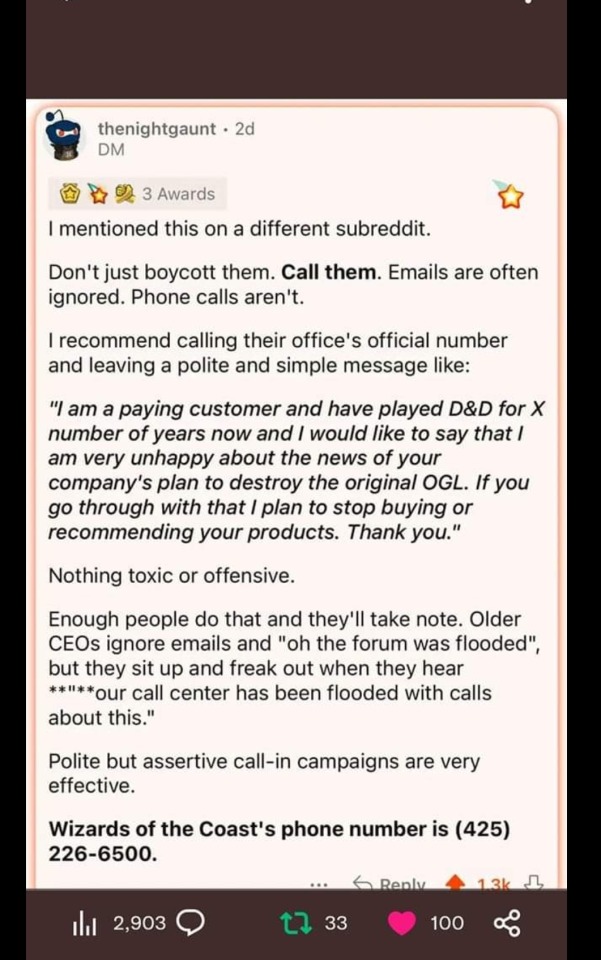
#dungeons and dragons#dnd#dungeon master#ttrpg#dungeons and memes#funny dnd#ttrpg memes#d&d#d&d memes#ttrpg meme#dnd ogl#wizards of the coast
12K notes
·
View notes
Text

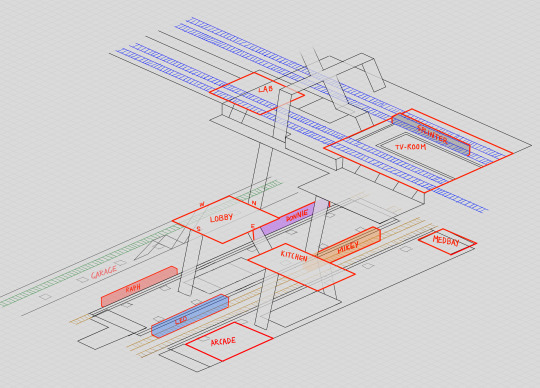
burned a few braincells trying to figure out the subway lair 🧍♂️
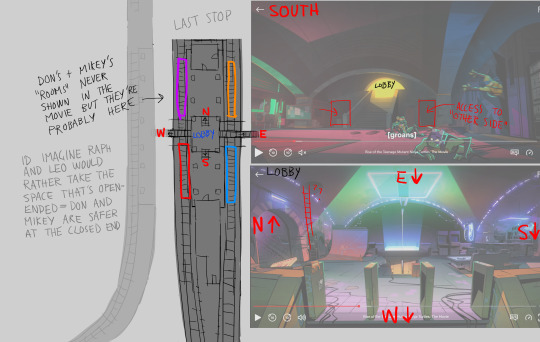
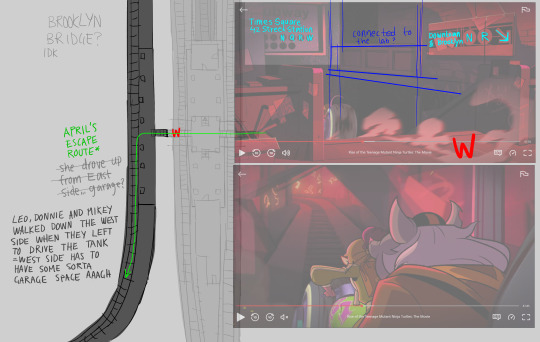
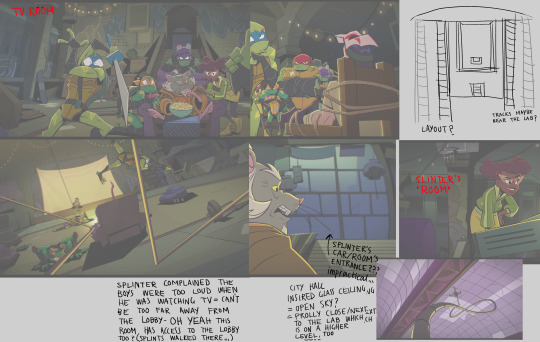

some of the research with hasty notes as i, a country person, tried to essentially explain how subways work to my city friends (idk how subways work). anyway, i figured i'd share these in case there's someone out there who's just as crazy as i am! :]
#i think i spent a good 5 hours in total just watching videos of subways??? just ogling at how the hell the supporting beams worked etc..#yea im normal why do you ask?#why do i always feel so embarrassed when i upload literally anythingawefawef#“sorry for inconveniencing you with my hyperfixations within my hyperfixations”#we're going matrix with the neurodivergency today#rottmnt#rottmnt lair#miiukkart#rottmnt subway lair reference
4K notes
·
View notes
Note
Hello, anagram entity. How has your day been? Also, your content is ðe single best þing on ðis hellsite.
hello, anagram entity. how has your day been? also, your content is ðe single best þing on ðis hellsite.
->
þ ðð
ohh, yo, i see two runty little shrimbs ogling a ball on any side o enclosure. i see the antennas. gay?
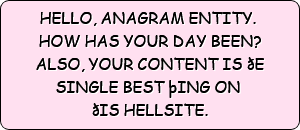
#bask ox#scone-myths#couldnt capitalize the eths and thorn in the gif or theyd stop being shrimbs ogling a ball
1K notes
·
View notes
Text

You see what he's saying, right?
#SaveDeadBoyDetectives
#dead boy detectives#save dead boy detectives#renew dead boy detectives#zack ogle#let's do this#netflix you're gonna pay for this#renew our boys or else
302 notes
·
View notes
Text
That man is so down bad😭
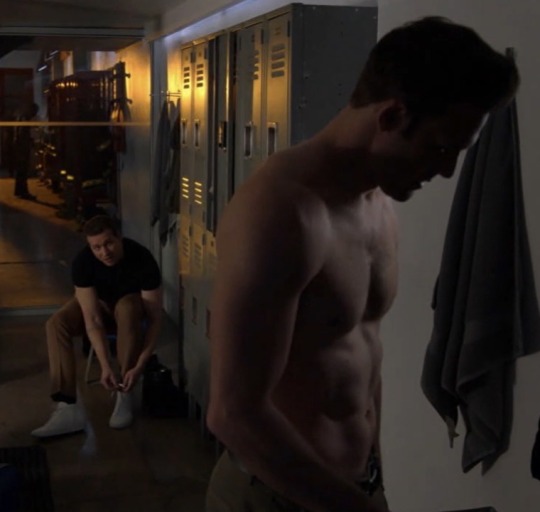
#why you ogling him like that IN PUBLIC#can’t blame him tho#911 spoilers#buddie#eddie diaz#evan buckley
490 notes
·
View notes
Text
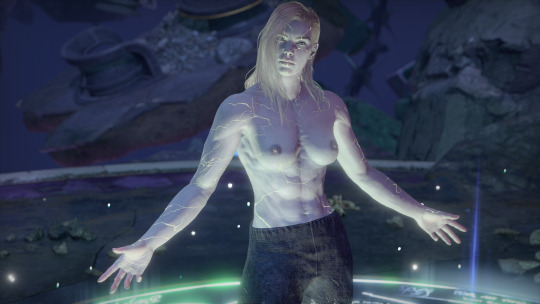
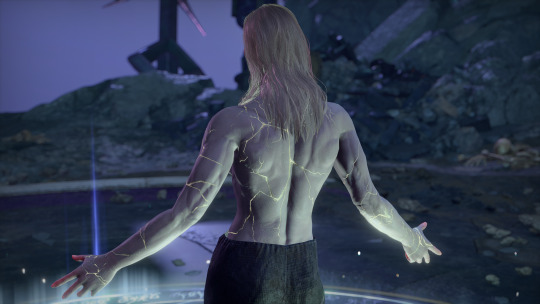
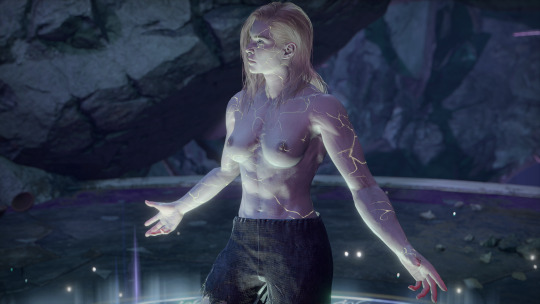
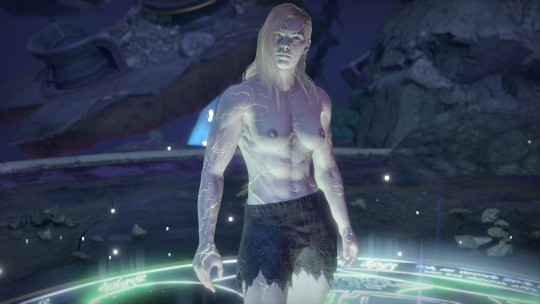
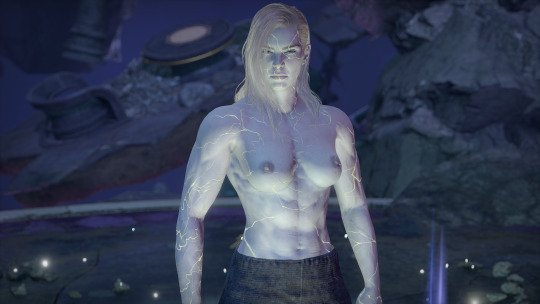

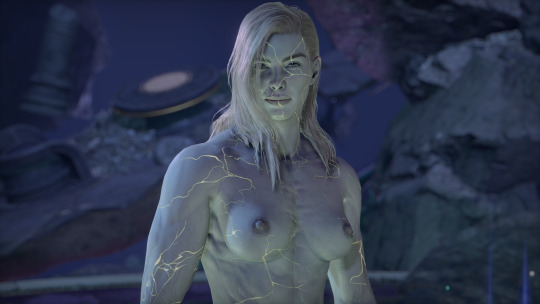
#baldur's gate 3#bg3#baldur's gate 3 spoilers#bg3 spoilers#dame aylin#aylin#bg3 aylin#justanotherignot#shirtless aylin#larian why did you make her so attractive in the shadowfell?#why#i'm so conflicted#i don't want to ogle but look at her#LOOK AT HER#if anyone else enjoys her back muscles here you go#and her abs too#she's smiling in the last one because she just said maggots ate balthazar's brain#she's adorable#look how proud she is of herself#no wonder isobel calls her precious
606 notes
·
View notes
Note


I love that stupid little face so much OH MY GOOOODD
#you only get a stinky sketch bc I say so#rw scavenger#rain world scavenger#what is bro ogling at#this is good scavenger practice ngl#I never draw them
213 notes
·
View notes
Text
gale is so passenger princess... he flies the planes but when they're on the ground he's just gonna sit and stare while john drives
#as he should i mean who wouldn't like to ogle john while he's driving#if you think about it they're... switching.#SPEAKING MY TRUTH#hear me out driving/piloting as metaphors for who's leading the sex#ok goodnight#clegan#mota
193 notes
·
View notes